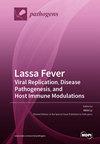1989 年至 2023 年美国新泽西州按动物种类划分的狂犬病空间集群分布情况
IF 3.3
3区 医学
Q2 MICROBIOLOGY
引用次数: 0
摘要
确定动物狂犬病的空间集群有助于决策者分配狂犬病防控资源。本研究旨在调查新泽西州县一级不同动物物种狂犬病的空间模式和热点。研究人员从新泽西州卫生部获得了 1989 年 1 月至 2023 年 12 月的动物狂犬病病例数据,并按县进行了汇总。计算每个物种的全球莫兰指数(I)统计量,以检测全球空间聚类(GeoDa 1.22 版)。计算了地方莫兰空间关联指数(LISA),以确定狂犬病的地方集群。利用 ArcGIS Pro 对 LISA 分析结果进行绘图,以确定聚类位置。共分析了 9637 例狂犬病病例,包括浣熊(n = 6308)、臭鼬(n = 1225)、蝙蝠(n = 1072)、猫(n = 597)、狐狸(n = 225)和土拨鼠(n = 210)。总体莫兰检验表明,浣熊(I = 0.32,p = 0.012)、狐狸(I = 0.29,p = 0.011)和土拨鼠(I = 0.37,p = 0.005)的总体空间聚类显著。LISA 结果显示,狂犬病在新泽西州东南部的浣熊和狐狸以及新泽西州北部的土拨鼠中存在明显的空间集群。这些发现可以指导新泽西州高风险县制定有针对性的狂犬病口服疫苗接种计划,减少家畜和人类的狂犬病暴露。本文章由计算机程序翻译,如有差异,请以英文原文为准。
Spatial Clustering of Rabies by Animal Species in New Jersey, United States, from 1989 to 2023
Identifying spatial clusters of rabies in animals aids policymakers in allocating resources for rabies prevention and control. This study aimed to investigate spatial patterns and hotspots of rabies in different animal species at the county level in New Jersey. Data on animal rabies cases from January 1989 to December 2023 were obtained from the New Jersey Department of Health and aggregated by county. Global Moran’s index (I) statistics were computed for each species to detect global spatial clustering (GeoDa version 1.22). Local Moran’s indicators of spatial association (LISA) were computed to identify local clusters of rabies. The results from the LISA analysis were mapped using ArcGIS Pro to pinpoint cluster locations. A total of 9637 rabies cases were analyzed among raccoons (n = 6308), skunks (n = 1225), bats (n = 1072), cats (n = 597), foxes (n = 225), and groundhogs (n = 210). A global Moran’s test indicated significant global spatial clustering in raccoons (I = 0.32, p = 0.012), foxes (I = 0.29, p = 0.011), and groundhogs (I = 0.37, p = 0.005). The LISA results revealed significant spatial clustering of rabies in raccoons and foxes in southeastern New Jersey and in groundhogs in northern New Jersey. These findings could guide the development of targeted oral rabies vaccination programs in high-risk New Jersey counties, reducing rabies exposure among domestic animals and humans.
求助全文
通过发布文献求助,成功后即可免费获取论文全文。
去求助
来源期刊

Pathogens
Medicine-Immunology and Allergy
CiteScore
6.40
自引率
8.10%
发文量
1285
审稿时长
17.75 days
期刊介绍:
Pathogens (ISSN 2076-0817) publishes reviews, regular research papers and short notes on all aspects of pathogens and pathogen-host interactions. There is no restriction on the length of the papers. Our aim is to encourage scientists to publish their experimental and theoretical research in as much detail as possible. Full experimental and/or methodical details must be provided for research articles.
 求助内容:
求助内容: 应助结果提醒方式:
应助结果提醒方式:


